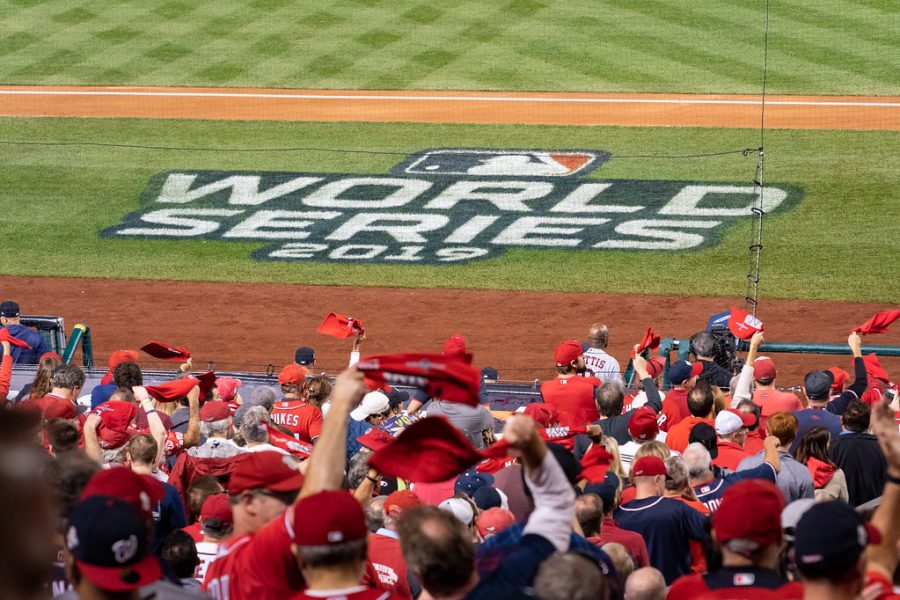Sign Stealing: An art or cheating?
Official White House Photo by Andrea Hanks
Washington Nationals fans wave rally towels during Game 5 of the MLB World Series between the Washington Nationals and the Houston Astros Sunday, Oct. 27, 2019, at Nationals Park in Washington, D.C.
March 25, 2020
The Houston Astros created an uproar after getting caught in a sign stealing scandal preceding the 2019 World Series, in which they won. With the Astros also being the World Series champs in 2017, this initiated a conspiracy that they cheated then and again in the 2018 season.
I know this whole “sign stealing” thing may be gibberish to some of you, so let me explain. In the game of baseball, signs are typically used as non-verbal communication on both offense and defense.
Whether it is a sign from the third base coach telling the hitter to bunt or the running on first base to steal, knowing the opposing teams’ signs will give a player an obvious advantage. The same can be said for when a catcher is giving a sign to his pitcher on what pitch goes next, but usually this isn’t something that is easy which is why if a player has the ability, it creates such an advantage.
The MLB opened the investigation into the cheating allegations and then in January of 2020 confirmed that the Astros illegally used a camera positioned to steal catchers signs from center field during the 2017 regular season and postseason. Thankfully for the Astros, the MLB found no evidence of illicit sign stealing in the 2019 season, in which the Astros advanced to and lost the World Series.
But based on which side a person is on, how the MLB reacted to this will either make them extremely content or angry. As a result, based on the findings from the 2017 and 2018 season, the MLB has now suspended the Astros’ General (Jeff Luhnow) and Field Managers (A. J. Hinch) for the entire 2020 MLB season for “failing to prevent the rules violations.” In turn, the Astros fired both Luhnow and Hinch after these repercussions.
Due to the MLB granting immunity because of their cooperation with the investigation, the players suffered no punishment directly. But the Astros corporation was punished with the highest possible fine the MLB can administer, five million dollars, and they also were forced to forfeit their first and second round draft picks, which in terms of filling a team with top tier prospects, this is an absolute season handicap.
As far as their 2017 World Series title goes, the MLB Commissioner Rob Manfred appeared on Fox Business and said, “the league will not strip the Houston Astros of their World Series title after the sign-stealing scandal.”
But for me, as a fellow baseball player and fan of the game, I don’t know exactly how to feel about this. Because even at the little league level, sign stealing has become an art to baseball. But such punishment is agreeable to a certain extent, should they be punished? I don’t particularly know, because has the league truly made a rule against sign stealing? No, and neither is there a rule about using technology for said sign stealing, but it’s more the breakage of the unwritten game morals.
As of now, I am still unsure how to feel about the whole thing.
The views in this column do not necessarily reflect the views of the GENESIS staff. Email Caleb Webb at [email protected] .








